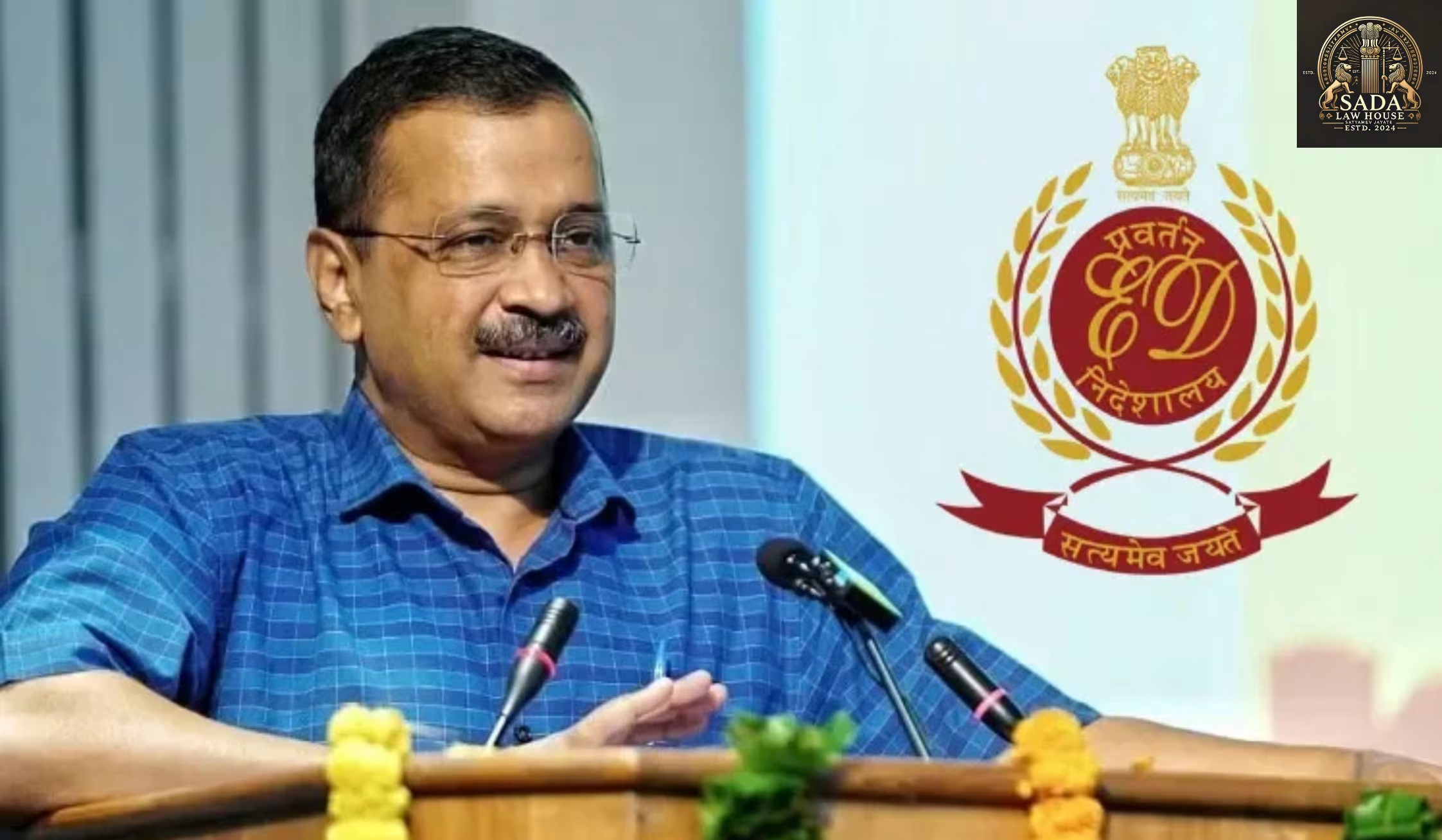Supreme Court Grants Interim Bail to Arvind Kejriwal in PMLA Case, Refers ED Arrest Challenge to Larger Bench
- REHA BHARGAV
- 02 june 2025

The Supreme Court of India granted interim bail to Delhi Chief Minister Arvind Kejriwal in the high-profile PMLA case involving the Delhi excise policy. Read the detailed analysis of the judgment, legal issues, and its implications on civil liberties and political arrests in India.
Introduction
In a landmark decision, the Supreme Court of India granted interim bail to Arvind Kejriwal, the Chief Minister of Delhi, who was arrested under the Prevention of Money Laundering Act (PMLA), 2002. The case has drawn significant public and legal attention, raising critical questions around politically sensitive arrests, due process, and the balance between state investigation powers and individual liberty.
The arrest, made by the Enforcement Directorate (ED), was linked to alleged corruption in the Delhi excise policy. Kejriwal’s legal team challenged the arrest, arguing it lacked credible grounds and was politically motivated.
Background: Facts of the Case
On March 21, 2024, the Enforcement Directorate arrested Arvind Kejriwal under Section 19 of the PMLA, citing alleged involvement in money laundering tied to irregularities in the Delhi excise policy.
Despite challenging the arrest in both the trial court and the Delhi High Court, both courts upheld the ED’s decision. Kejriwal then approached the Supreme Court of India, seeking interim bail during the pendency of his appeal. The case tested the limits of judicial oversight in politically charged criminal investigations.
Legal Issue Before the Court
Key Legal Question:
Is Arvind Kejriwal entitled to interim bail while his appeal against the ED arrest under the PMLA is pending before the Supreme Court?
This issue revolves around interpreting the scope of Section 19 of the PMLA, personal liberty under Article 21 of the Constitution, and the role of the courts in cases involving allegations of white-collar crime and political misuse of investigative powers.
Arguments Presented
Petitioner’s Arguments
Kejriwal’s legal team argued that:
The arrest was unlawful and politically motivated.
There was no credible evidence justifying custodial detention.
He had no criminal record, posed no flight risk, and showed willingness to cooperate.
His continued detention infringed on his fundamental right to liberty under Article 21.
Interim bail was essential given the serious legal questions his case raised.
Respondent’s Arguments
The Enforcement Directorate countered that:
Kejriwal’s arrest was lawful and based on sufficient evidence under the PMLA.
There were concerns about tampering with evidence or influencing witnesses.
Granting bail would compromise the integrity of the ongoing investigation.
The gravity of the offence warranted strict custodial measures.
Supreme Court Judgment
On May 10, 2024, a bench comprising Justice Sanjeev Khanna and Justice Dipankar Datta ruled in favor of granting interim bail to Arvind Kejriwal.
The Court held that:
The legality of the arrest raised substantial legal issues.
Kejriwal had a clean record, and no strong evidence existed that he would obstruct the investigation.
Liberty is a core constitutional right, and custodial detention must be the exception, not the norm.
The Court imposed conditions on the bail to ensure cooperation with the ED and prevent any interference with the investigation.
Additionally, the Court referred the broader legal challenge to the legality of the ED’s arrest powers under the PMLA to a larger constitutional bench, indicating the case’s significance for future enforcement practices.
Conclusion: Legal and Political Implications
The Supreme Court’s decision is a crucial reaffirmation of individual liberty, especially in cases involving allegations of political vendetta and abuse of power. By granting interim bail while ensuring the investigation continues, the Court has balanced state interests and fundamental rights.
This case is expected to set a precedent in future matters involving the Prevention of Money Laundering Act, especially concerning the ED’s arrest powers, political accountability, and judicial checks on executive overreach.
Case Laws






